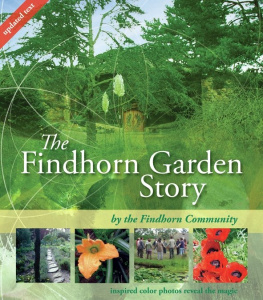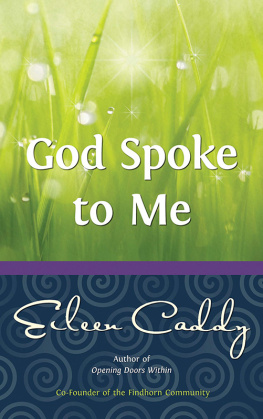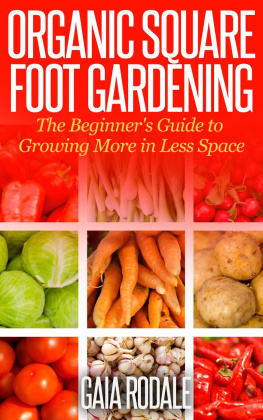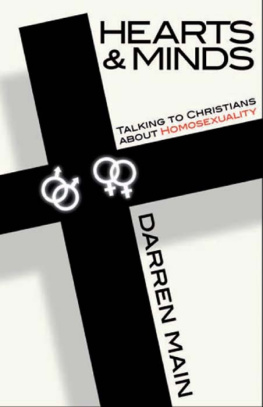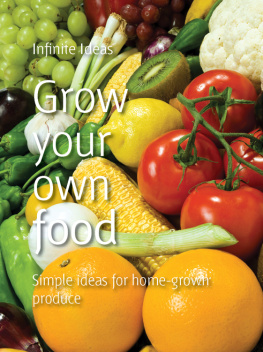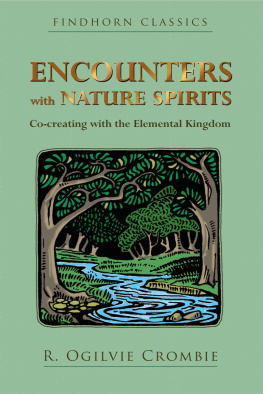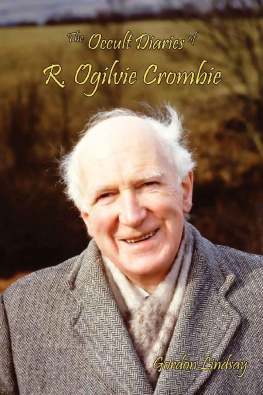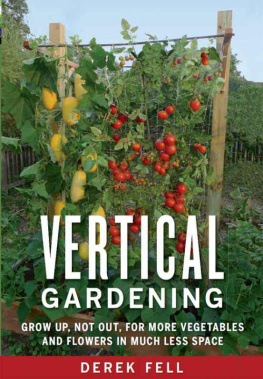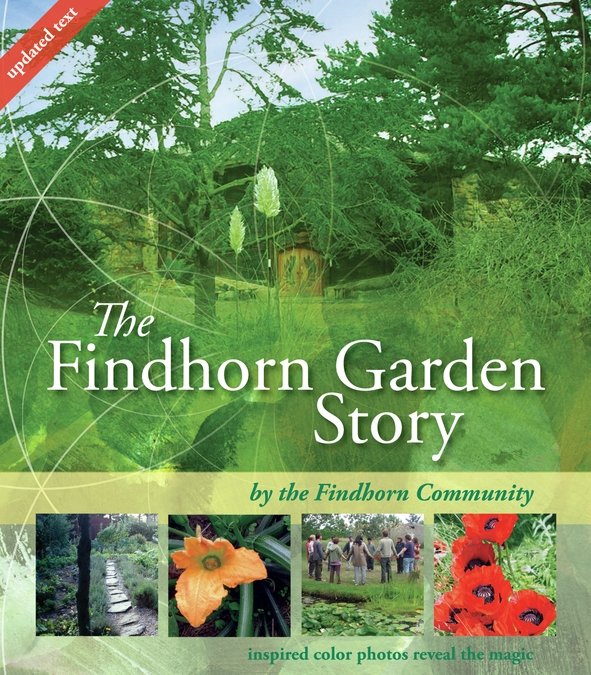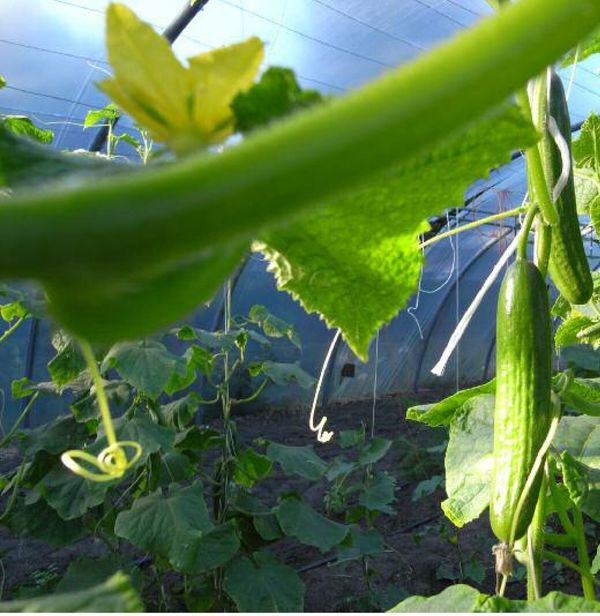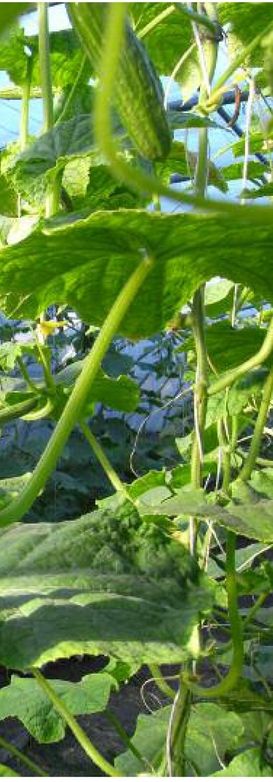FINDHORN: THE ORGANIC CENTER.
The theme of the Findhorn gardenthe cooperation of humanity with the kingdom of nature, as represented by the devas and the nature spiritshas great significance in reorienting our consciousness towards the more holistic and transmaterial outlook which planetary survival would seem to require of us. The importance of the garden, as indeed of all areas of the community, lies in demonstrating the processes of the organic nature of consciousness attuned to the center and oneness of all life. Such an attunement can invoke and use in balance the formative, creative energies of the universe for the transformation of matter and the rebuilding of the Earth.
At a time when much is being written about the possibilities of communication with extraterrestrial beings, it is instructive to realize that we are surrounded by a world of intelligent lives who wield the most potent forces on Earth and who are eagerly waiting to enter into renewing a meaningful dialogue with us. As Dorothy and Roc have eloquently pointed out in this book, these lives have much to teach us and, in turn, they look to humanity for help and instruction in furthering the causes of evolution. They offer us a true partnership, as well as affirming humanitys essential divinity. Humanity has been playing with the fringes of true power, and has come close to destroying its world in the process. Findhorn now demonstrates the entry into a shared realm of real power, consecrated by a partnership of love, wisdom and understanding.
Deeper than that lies another message, as well, which the cooperation demonstrated in the Findhorn garden and its community has to offer. Deva, elemental, humanall participate in and reflect the same universal processes of growth. Our planet is informed with a life and a spirit which is gradually unfolding itself, realizing its latent potentials. This process repeats itself on every level of being. It can be symbolized by the unfolding seed that reveals through the various life stages of a tree, a flower or a vegetable the wholeness of what it is. The esoteric traditions of all cultures speak of the withinness of things that seeks to externalize and to fulfill itself. If we think of our planet as an organic, growing systema living beingthen it, too, has an image of fulfillment buried within its seed center, an image that is using all of nature as its means of emergence.
Within such a concept, humanity occupies a unique position. We are the kingdom of synthesis: part of us has evolved from the Earth, part of us has descended from a higher and cosmic level. We are, the devas say, their brothers, once part of them, who diverged into a different course of evolution while still retaining devic qualities within our higher natures. We are linked to the elementals, as well. We share in the biosystem, the ecology, the psychic energies of the natural world of Earth, yet we participate in a world of thought and intuition and of spirit that extends beyond this world. Unlike the patterns that encompass the evolution of plants and animals, our evolution is open-ended,open to creative repatterning by our own consciousness. (This potential, which is basically spiritual, is dimly reflected in modern attempts at genetic engineering and bio-molecular manipulation to change hereditary programming.) We can become true Lords of Evolution, taking over our own development from the forces of planetary nature which have brought us this far and extending that awareness and ability to assist the entire field of Earths evolution.
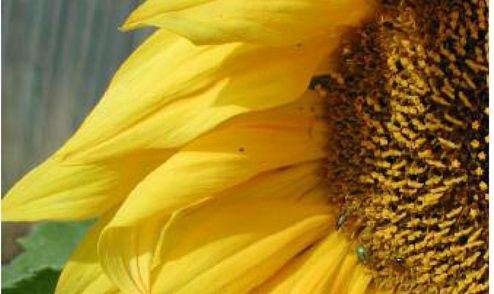
Thus, humanity represents the stage of Earths unfoldment at which the planetary soul becomes not only self-aware but functionally and creatively conscious of the processes through which growth, awareness and the externalization of spirit through form take place. Such a consciousness can say not only, I am, but it can also say, I know how I am what I am. I know and can work with the processes of identity through which I am becoming what I am. The devas are personifications and embodiments of these processes. They represent to humanity the consciousness which it must manifest in order to take its next evolutionary step.
To me, the New Age consciousness is essentially self-aware and rooted in its organic center of identity, that point where consciousness emerges from pure being into dynamic becoming. Such a consciousness participates knowingly in the growth process by understanding that process and thus wielding its energies. The essence of all growth processes is, in fact, divinity. Therefore, this consciousness is aware of divinity, but not as a thing, a possession, nor as some external agency that directs it. Rather, divinity is the very core and source and identity of the process of its being. Living that process with awareness, the New Age consciousness is capable of becoming one with its Father or source. Revealing the secret of the creative power of organic, integrated growth is Findhorns contribution to this unfolding consciousness within humanity.
The affirmation of the organic center of identity and the process of emergence pervades Findhorn. Whether perceived through the devic or elemental influences of the garden, through attunement to God and to divine guidance, or simply as the creative spirit working through individuals who are given freedom to fulfill themselves in relation to a creative community, this process is the true phenomenon of this center by the North Sea. They are not just growing vegetables and flowers on barren sand. They are working with the processes of emergence and drawing out of Earth its potential. This actualization of the living Self of the planet is what has transformed the barren sand into a garden. The same is true for the members of the community. These people are not unfolding because they are working in a garden, apottery, a college, or any of the other activities in which Findhorn is now engaged. They are being transformed into new people because they are learning to identify with the process of themselves, rather than with their forms. They are learning to understand and to be the growth energies that are stored within the depths of their organic psyche, their seed center of individuality.
Findhorn sounds a note of return to nature, but this can be deceptive, for it is not just the nature of woodlands and forests, of meadowlands and gardens, of shaded glens and still lochs and ice-crowned peaks. The return is to the dynamics of nature, the nature of nature. It is a return to the soul and intelligence and divinity of nature of which humanity is an integral part and through which the spirit of man is revealed. This is the world that Findhorn demonstrates. This is the Findhorn garden story, the story of the processes by which the world was born and by which it evolves; the processes by which the world now reaches, with the help of humanity, for a new unity of spirit and release of energy in evolution.

